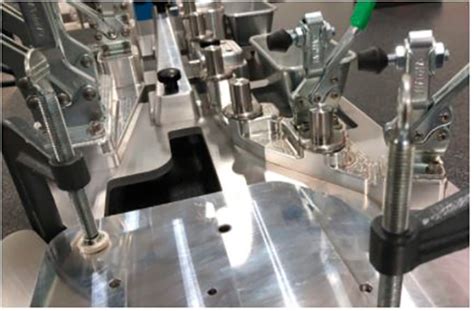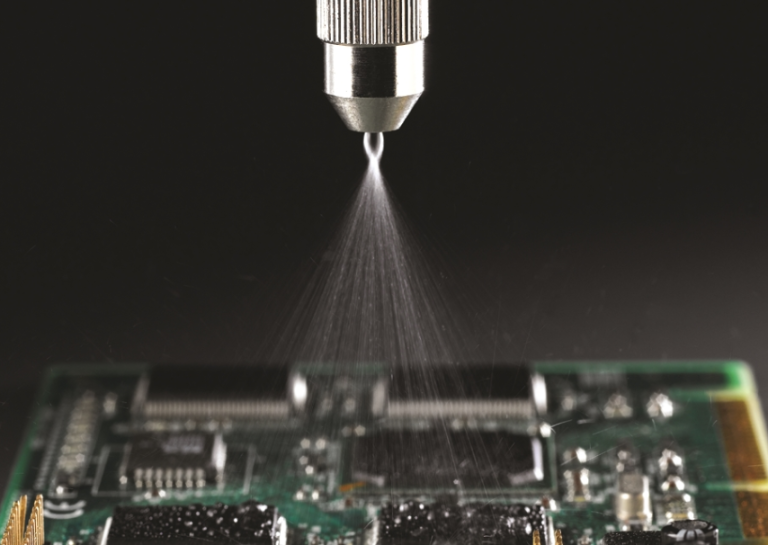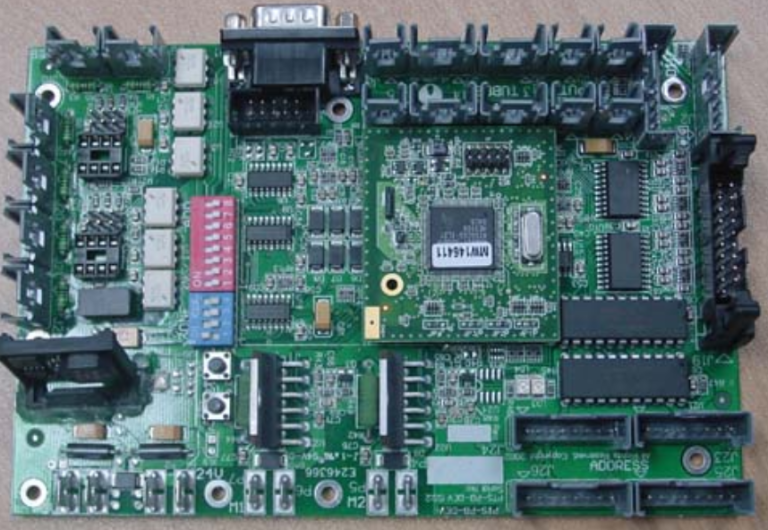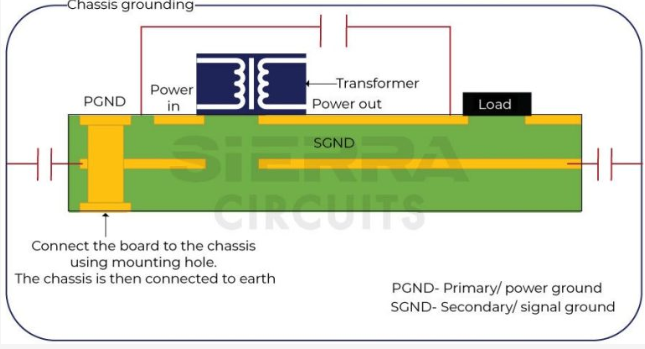Unlocking Efficiency: The Power of Turnkey Assembly Solutions
Key Takeaways
Turnkey assembly solutions, particularly in the realm of pcb assembly and pcba, offer transformative opportunities for modern manufacturing. These integrated systems are designed to streamline production processes, ensuring that each component works together seamlessly. By adopting a turnkey assembly approach, businesses can significantly enhance operational efficiency, allowing them to focus on core competencies and innovation. The use of pcba not only simplifies the manufacturing workflow but also reduces the likelihood of errors, as each phase is meticulously managed within a cohesive framework. Moreover, such solutions can lead to substantial cost reductions by minimizing overheads and optimizing resource utilization. As organizations continue to seek competitive advantages, recognizing the potential of these solutions will be vital for unlocking full operational potential and fostering long-term sustainability in their production strategies.
Understanding Turnkey Assembly: An Overview of Integrated Solutions
Turnkey assembly solutions represent a progressive approach to manufacturing that integrates multiple processes into a single, cohesive system. This method is particularly beneficial in areas such as pcb assembly and pcba, where precision and efficiency are critical. By adopting a turnkey assembly model, businesses can streamline their production workflows, reducing the need for separate processes and minimizing downtime between each phase of manufacturing. This means that companies can achieve faster time-to-market while maintaining high quality in their products. The integration of various systems facilitates a seamless operation that is easier to manage and monitor, ultimately leading to improved decision-making and responsiveness to market demands. Through this holistic approach, organizations are empowered to harness their full potential, as they can focus on enhancing productivity without getting bogged down by operational complexities. With its emphasis on efficiency, turnkey assembly not only contributes to cost savings but also builds a foundation for sustainable growth in an ever-evolving manufacturing landscape.
The Benefits of Turnkey Assembly Solutions for Modern Manufacturing
Turnkey assembly solutions have emerged as a transformative force in modern manufacturing, particularly in sectors that rely heavily on products such as PCB assembly and PCBA. By integrating design, production, and assembly processes into a cohesive system, these solutions enhance operational efficiency by minimizing the complexities often associated with traditional manufacturing methods. Companies can benefit from reduced lead times and increased production throughput, paving the way for quicker market entry and response to customer demands.
Moreover, the application of turnkey assembly allows for a standardized approach to manufacturing that significantly decreases the chances of errors during production. The seamless integration of various components not only simplifies workflows but also streamlines communication between different departments. This ultimately leads to fewer disruptions and a more reliable output.
| Benefit | Description |
|---|---|
| Enhanced Efficiency | Integrated systems reduce time lost in transitions between tasks. |
| Cost Savings | Decreased labor and operational costs through automation. |
| Quality Assurance | Standardized processes lead to better quality control measures. |
“Investing in turnkey assembly systems can yield significant returns through operational efficiency and cost reduction.”
Furthermore, with the increasing complexity of electronic products relying on PCB assembly, manufacturers find that these integrated solutions provide not only technological advancements but also scalability. As businesses expand or pivot in response to market changes, turnkey systems offer the flexibility needed to adapt without compromising productivity or quality.
In conclusion, integrating turnkey assembly into manufacturing processes offers substantial benefits that empower businesses to maximize their potential while navigating the challenges of a dynamic market landscape. Whether focusing on PCBA challenges or broadening product lines, embracing these solutions is a strategic move towards efficient production practices.
Streamlining Production Processes: How Turnkey Assembly Enhances Efficiency
In an increasingly competitive manufacturing landscape, turnkey assembly emerges as a critical solution for enhancing operational productivity and reducing lead times. The incorporation of integrated systems in production allows companies to simultaneously streamline various elements of their workflow, significantly minimizing complexities that typically arise in the assembly process. This approach not only optimizes the coordination between different departments but also eliminates the need for multiple suppliers, thereby fostering a smoother transition from raw materials to final products. For instance, in pcb assembly operations where precision and speed are paramount, the use of turnkey solutions can lead directly to improved quality control and faster turnaround times. As businesses embrace the benefits of pcba, they find that establishing a unified framework allows for greater flexibility and responsiveness to market demands. This synergy between technology and process management ensures that manufacturers can unlock their full potential, delivering superior products efficiently while also achieving substantial cost savings over time. The result is a production environment where efficiency is maximized, enabling businesses to meet customer demands with confidence.
Cost Reduction Strategies Through Turnkey Assembly Systems
Implementing turnkey assembly systems can be a pivotal strategy for companies seeking to reduce costs while enhancing productivity. By adopting these integrated solutions, organizations can streamline their workflows and minimize resource waste, ultimately leading to significant savings. A primary advantage of using turnkey assembly is the elimination of the need for multiple vendors and suppliers in the production process. This consolidation allows for better negotiation on pricing and terms, further decreasing costs associated with procurement and logistics. Additionally, improved pcb assembly techniques contribute to operational efficiency by standardizing production processes, which limits the incidence of errors and rework. The use of pcba solutions ensures that every component is meticulously integrated and tested, enabling quicker turnaround times without sacrificing quality. Moreover, the upfront investment in a turnkey system can often be offset by the long-term savings generated through increased operational efficiency and reduced labor costs. By leveraging the power of integrated systems, businesses not only optimize their production capabilities but also unlock substantial financial benefits that can be reinvested into further innovation and growth.
Implementing Turnkey Assembly: Steps to Unlock Your Business’s Potential
To fully harness the advantages of turnkey assembly solutions, businesses must take a systematic approach to implementation. The first step involves conducting an in-depth assessment of current processes to identify inefficiencies, particularly in areas like pcb assembly and pcba operations, where integrated systems can significantly streamline workflows. Next, organizations should develop a tailored plan that reflects their unique operational needs while incorporating turnkey assembly techniques. At this stage, collaboration with experienced vendors can provide insights into suitable technologies and practices that best fit the company’s objectives. Training staff on the functionalities of these integrated systems ensures that employees are equipped to leverage new technologies effectively. Additionally, regular monitoring and evaluation of performance post-implementation are crucial; this helps ascertain whether the expected outcomes—such as enhanced efficiency and reduced costs—are being met. By following these steps, businesses can unlock their full potential through the seamless integration of turnkey assembly solutions into their production processes, thereby fostering a culture of continuous improvement and operational excellence.
Case Studies: Successful Adoption of Turnkey Assembly in Various Industries
In recent years, several industries have successfully adopted turnkey assembly solutions to enhance their manufacturing processes. For instance, in the electronics sector, companies specializing in PCB assembly have reported significant improvements in efficiency and cost savings. These organizations implement integrated systems that facilitate smoother transitions from design to production, drastically reducing lead times. A notable case is a leading manufacturer of consumer electronics that integrated PCBA technology into its production line. By employing a turnkey assembly approach, they streamlined their operations and minimized waste, thereby increasing their overall productivity. Furthermore, sectors such as automotive and aerospace have harnessed these solutions to ensure precision and consistency, which are critical for safety and performance. These case studies highlight how turnkey systems not only optimize production processes but also empower businesses to scale operations effectively without compromising quality or incurring excessive costs. The positive outcomes experienced across various industries illustrate the transformative potential of turnkey assembly, paving the way for future advancements in manufacturing practices.
Future Trends in Turnkey Assembly Solutions and Their Impact on Productivity
As industries continue to evolve, turnkey assembly solutions are expected to adapt, integrating advanced technologies such as automation and artificial intelligence. These innovations will enable a more streamlined approach to production processes, particularly in areas like pcb assembly and pcba. By automating routine tasks, businesses can increase productivity while ensuring higher quality outputs. Moreover, the incorporation of data analytics within turnkey assembly systems will allow for real-time monitoring and adjustments, further enhancing operational efficiency. Looking ahead, the rise of customization demands will push manufacturers to leverage flexible assembly lines, making them more responsive to customer needs without compromising on cost-effectiveness. Thus, the future of turnkey assembly is not only about improving operational workflows but also about enabling businesses to remain competitive in a rapidly changing marketplace. The synthesis of these trends is poised to unlock new efficiencies that contribute significantly to overall productivity gains across various sectors.
Conclusion
In conclusion, integrating turnkey assembly solutions into manufacturing processes presents a transformative opportunity for businesses looking to enhance productivity and efficiency. By adopting these systems, organizations can streamline pcb assembly operations and effectively manage the complexities associated with manufacturing. The automation and optimization offered by such solutions minimize delays and reduce labor costs, paving the way for substantial savings and improved output. Furthermore, the holistic nature of pcba systems ensures that each component of production aligns seamlessly, resulting in elevated quality control and faster time-to-market for new products. As industries continue to evolve, businesses that embrace these integrated solutions will be better positioned to respond to market demands and maintain a competitive edge, ultimately unlocking their full potential while fostering innovation in their respective fields.
FAQs
One common inquiry regarding turnkey assembly solutions is how they specifically enhance processes like pcb assembly. Turnkey assembly offers a comprehensive approach by integrating various components and services into a single package. This stands in contrast to traditional manufacturing methods that often involve multiple suppliers and fragmented processes. By using a pcba (Printed Circuit Board Assembly) service, businesses can enjoy streamlined workflows where the design, manufacturing, and assembly stages are seamlessly interconnected. This not only reduces the chances of errors that might arise from miscommunication among different parties but also accelerates the overall production timeline.
Another frequent question revolves around the cost implications of implementing these systems. Although initial investments in turnkey solutions might seem high, the long-term savings from reduced labor costs and increased efficiency can significantly outweigh those upfront expenses. As companies begin to leverage turnkey assembly, they often see improvements in lead times, which allows them to respond more quickly to market demands while maintaining high-quality standards in their pcb assembly processes.
Furthermore, organizations seeking to adopt turnkey solutions should be aware of the importance of selecting a reliable partner. Choosing a vendor specializing in pcba services can ensure that the designed system is flexible enough to adapt to future scaling needs while keeping production costs down.
Discover More About PCB Assembly Solutions
For more information on how turnkey assembly can revolutionize your production processes, please click here.







